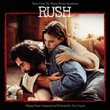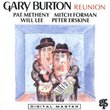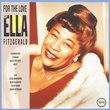| All Artists: Johannes Brahms, Georg Solti, Chicago Symphony Orchestra Title: Brahms: The Symphonies Members Wishing: 0 Total Copies: 1 Label: Decca Release Date: 2/11/1992 Album Type: Box set Genre: Classical Styles: Historical Periods, Modern, 20th, & 21st Century, Symphonies Number of Discs: 4 SwapaCD Credits: 4 UPC: 028943079921 |
Search - Johannes Brahms, Georg Solti, Chicago Symphony Orchestra :: Brahms: The Symphonies
 | Johannes Brahms, Georg Solti, Chicago Symphony Orchestra Brahms: The Symphonies Genre: Classical
No Description Available. Genre: Classical Music Media Format: Compact Disk Rating: Release Date: 11-FEB-1992 ![header=[] body=[This CD is available to be requested as disc only.]](/images/attributes/disc.png?v=4eeb5dd5) ![header=[] body=[This CD is available to be requested with the disc and back insert.]](/images/attributes/disc_back.png?v=4eeb5dd5) ![header=[] body=[This CD is available to be requested with the disc and front insert.]](/images/attributes/disc_front.png?v=4eeb5dd5) ![header=[] body=[This CD is available to be requested with the disc, front and back inserts.]](/images/attributes/disc_front_back.png?v=4eeb5dd5) |
Larger Image |
CD DetailsSynopsis
Product Description No Description Available. Genre: Classical Music Media Format: Compact Disk Rating: Release Date: 11-FEB-1992 Similarly Requested CDs
|
CD ReviewsBass-ically Superb Rich Yampell | 09/16/2000 (5 out of 5 stars) "I used to like Brahms a lot. Lately I've been listening to this set, particularly the 1st Symphony, and my opinion has changed. Now I am in absolute awe of him. Why has this collection changed my mind? In one word: bass. The low register instruments, especially the basses and cellos, stand strongly in these recordings, and the result is I'm discovering a *lot* of depth to the composition that had escaped me before. Brahms turns out to be a much better composer than other recordings had let me discover before. In certain passages, I focus totally on the low strings, just to see what they're up to, and I'm richly rewarded. Then I go back to some of my previous Brahms' recordings, and I can barely hear the same wonderful passages. Very disappointing!Aside from the wonderful mix, everything else is quite fine. The tempos are crisp, the orchestra sounds magnificent, just right on.Finally, Solti should NOT be commended for including the exposition repeats. Instead, other conductors should be cursed and shunned for ever omitting them." Great Recordings of the Man Brahms Trevor Gillespie | San Jose, California United States | 02/20/2001 (5 out of 5 stars) "As with most of my reviews, I must comment on the sound. London/Decca has nearly perfected how to make great sounding recordings. These discs, recorded in the late 70s are a great demonstration of the "Decca Sound" which I am such an adamant fan of. For a recording to be great, it has to start off with adequate sound to detail the music. Here the recorded sound is excellent--has good presence, full detail from highs to lows, and spacious.Two factors go into my rating of 5 stars. First, the price. Seeing that this is an affordable box set, it instantly becomes favorable. Full price box sets of 4 discs are around $60. The favorable price of the set coupled with the performances make this box set attractive enough to rate it 5 stars. Solti turns in some great performance of Brahms' symphonies. Solti favors a full orchestra with thicker textures rather the lighter and thinner orchestras of say a Mackerras recording. I enjoy the full orchestra with a beefier string section. The tempos of the symphonies are well within range of most other recordings. There aren't really any big surprises in these recordings, which can often make them not stand out in a crowded bin of Brahms recordings. However, that doesn't mean they are bad performances. Now, if one was to buy individual recordings of each symphony, there are performances which truly stand out, but this set has to be seen as a collective and overall this set is great. Whether you're a fan of the symphonies of Brahms, or the conducting style of George Solti, you'll find that these are fine recordings with enough flair to keep you interested. One note for comparison, all 4 Brahms symphonies are available on 2 discs recorded by Herbert von Karajan and the Berlin Philharmonic. They are cheaper and a little bit more spirted than this box set if you're all about price." Get This Set!!!! DWPC | Ventura, CA United States | 01/17/2002 (5 out of 5 stars) "There may be argument among Brahms afficienados whether these Solti/Chicago sessions were the pinnacle of the performing of the Brahms Symphonies, but as a package, this 4 disk set is a superb investment for any Brahms lover.First, the recording quality is absolutely superb. I have few, if any, other orchestral cds that provide such a soundstage and dynamics. All sections are well balanced. Background noise is totally absent; the orchestra comes out of a black velvet silence. I don't know whether this was studio or auditorium recorded, but the acoustics are first rate. Its a great example of the "golden days" of recording.Second, all the performances are excellent and one would need to do a close comparison to evaluate whether Solti should take a backseat to anyone as an interpreter of Brahms' orchestral music. His use of the full dynamic range of the orchestra is masterful. He lays a strong foundation for Brahms wonderfully melodic work in the lower registers of the strings and woodwinds.This set has become one of my favorites, and the 3rd Symphony disk is now the orchestral "show off" disk for my equipment."
|

 Track Listings (4) - Disc #1
Track Listings (4) - Disc #1





![Waylon Jennings - Greatest Hits [RCA]](https://nationalbookswap.com/cd//m/27/2727/92727.jpg)


